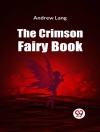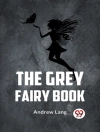In ‘Time Regained, ‘ the concluding volume of Marcel Proust’s monumental work ‘In Search of Lost Time, ‘ readers are invited to explore the intricacies of memory, time, and artistic creation. Proust’s famously elaborate prose weaves a complex tapestry of introspection and revelation, as the protagonist, Marcel, contemplates the elusive nature of time and its impact on identity. The narrative oscillates between the minutiae of daily life and profound philosophical insights, employing a stream-of-consciousness style that captures the fluidity of recollection and experience, ultimately culminating in a poignant meditation on the reconciliation of the past with the present. Marcel Proust (1871-1922), a towering figure in modernist literature, drew deeply from his own experiences of society, art, and loss. His reflections on time and memory were profoundly influenced by the tumultuous events of his life, including his relationships and health struggles. Proust’s unique voice and perspective flourished in a Paris marked by cultural upheaval, prompting his ambitious exploration of consciousness and the self within a changing world. ‘Time Regained’ is essential reading for anyone seeking to understand the intricacies of human experience through the lens of memory and art. Proust’s philosophical musings and exquisite language offer profound insights into the essence of life, making this book not only a literary achievement but also a philosophical journey that stays with the reader long after the final page.
عن المؤلف
Valentin Louis Georges Eugène Marcel Proust was a French novelist best known for his monumental work ‘À la recherche du temps perdu’ (In Search of Lost Time), a seven-volume series published between 1913 and 1927. Born on July 10, 1871, in Auteuil, France, he was the son of an eminent physician, Adrien Proust, and his wife, Jeanne Clémence Weil. Initially following his father’s footsteps in pursuing a path in law, Proust soon gravitated towards writing and became a prominent figure in literary circles. He is praised for his pioneering narrative style characterized by introspective streams of consciousness which profoundly influenced literary modernism. ‘Time Regained’ (Le Temps retrouvé), the seventh and final volume of his major work, offers the climactic conclusion of the narrative, tying together the overarching themes of memory, time, and art. Proust’s intricate writing further involves an acute analysis of society and human nature, creating characters with psychological depth. Although he suffered from asthma and health issues throughout his life, which often impacted his social activities, Proust was able to draw from his keen observations of French society in developing a labyrinthine literary portrait of life in the late 19th and early 20th centuries. Proust’s legacy is enshrined in the annals of literature; his profound exploration of memory and desire has continued to resonate with readers and scholars alike. He passed away on November 18, 1922, in Paris, but his influence endures through his timeless contributions to the world of letters.












